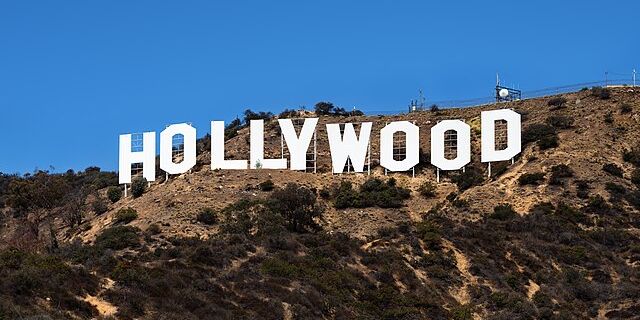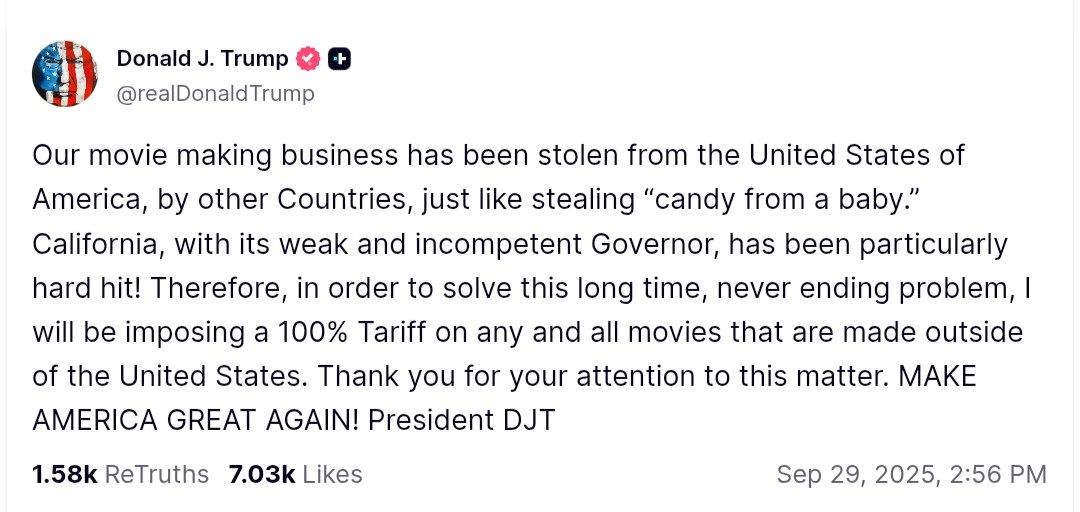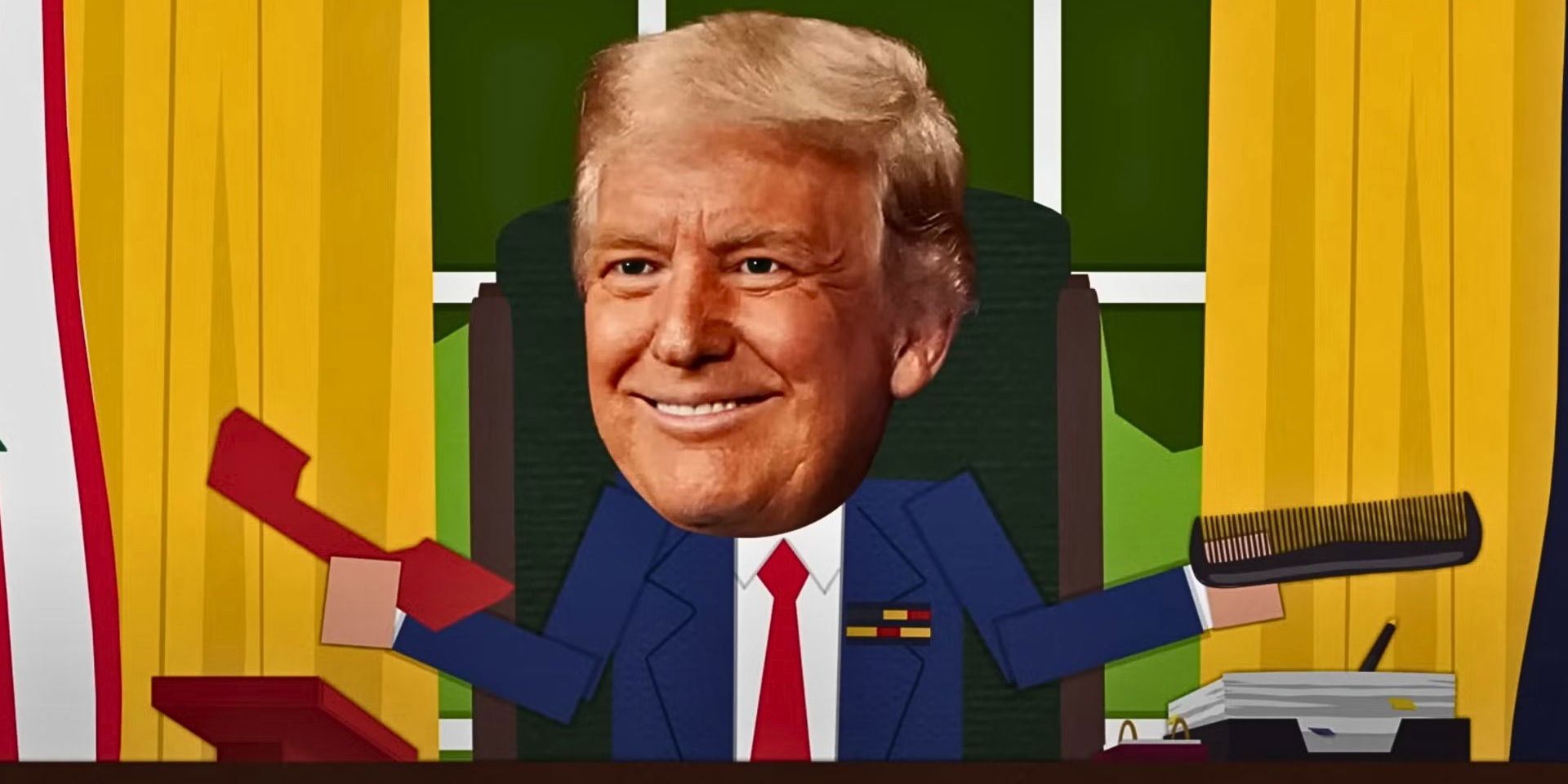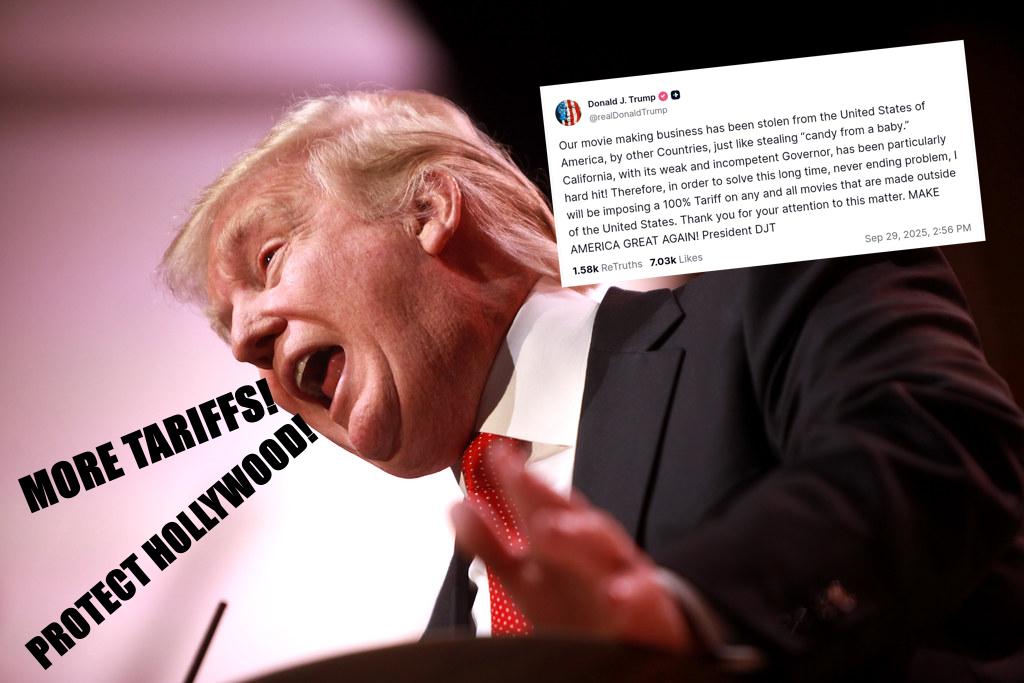Last week, I was raving about Demon Slayer’s jaw-dropping animation, emotional storytelling and how waiting all this time for the new movie was absolutely worth it. I thought the biggest drama surrounding Demon Slayer this year would be whether my local cinema sold out of popcorn.
But apparently, I was wrong. Because this week, the drama didn’t come from the anime world — it came straight out of American politics. And trust me, this one is so absurd it feels like it should’ve been written as parody.

Trump vs. Demon Slayer?
So, in case you missed it: President Donald Trump decided to propose higher tariffs on foreign films… and the spark, apparently, was Demon Slayer. Yes, you read that right.
A Japanese anime movie was so successful in U.S. theaters that Trump suddenly decided America needed to “protect its movie industry”.
I mean—what?? Are we really pretending that anime teens with swords are threatening Hollywood? Because if that’s the case, someone tell Marvel to start drawing thicker outlines and throwing in some cherry blossoms.


The funniest part? It makes no sense
First of all, most of the “big bad foreign movies” are not even a threat to U.S. film revenue. They come and go, make a splash with niche audiences, and then it’s back to the next Fast & Furious. The idea that America’s film industry is going to collapse because Tanjiro swung his sword a little too beautifully is laughable.
Second, does Trump actually believe people would choose an anime film over, say, the next Top Gun? No. Anime fans are anime fans. We go because we love it — not because we’ve abandoned Hollywood blockbusters. The overlap is almost nonexistent.
It’s like blaming your favorite burger joint for your local pizza place’s bad reviews. Totally unrelated.

If anything, Demon Slayer HELPED
Here’s the part no one’s talking about: Demon Slayer did what Hollywood itself sometimes struggles to do — get people into theaters. In an age of streaming, TikTok and attention spans shorter than Zenitsu’s patience, anime has managed to drag entire crowds to cinemas.
That’s not a problem — it’s a blessing!
And now we’re seriously suggesting punishing that with tariffs? It’s like saying, “Wow, someone just brought fresh oxygen into this stale room — quick, make it more expensive!”


What is Trump actually proposing — and what’s real vs. talk
Okay, before we get too deep into mocking, I should pause and explain what the heck is going on. Because as far as I can tell: yes, Trump said it. But no, this isn’t a fully baked policy yet.
Late September 2025 (and earlier flagged back in May), Trump announced that he would impose a 100% tariff on all films produced outside the United States that are imported into the U.S. market.
He framed this as a protectionist measure — to “defend Hollywood”, ensure more films are made in America and combat the financial incentives that lure production overseas.
What’s still unclear (i.e. where the “nonsense” lives)? Because, of course, this isn’t that simple.
Some major unknowns:
- Has this tariff actually been enacted yet? Nope. No final decision, no binding law, no implementation details. The White House itself has said it’s exploring options, but nothing is locked in.
- Which films count as “foreign”? That’s a mess in itself. Modern movies often have production, post-production, visual effects or funding from multiple countries. Would a film shot partly abroad count? What about U.S. films that outsource animation overseas? No clarity.
- Will it apply to streaming, digital imports or just theatrical releases? Unknown. Because movies today aren’t always shipped in boxes — they’re distributed globally over the internet. How you “tariff” a digital streaming film is a great question no one has answered (yet).
- Does “all foreign countries” mean literally everywhere outside the U.S.? The announcement as stated is sweeping: “any and all movies that are made outside of the United States”. But again, given the ambiguity, some corner cases might get carved out; though no one’s confirmed that.
- When would this happen? That’s another mystery. He’s authorized agencies (Commerce, U.S. Trade Representative, etc.) to work on it. But there is no date, no schedule, no going-into-effect timeline publicly announced.


Why everyone is scratching their heads
Because enacting such a tariff is extremely complicated (if not legally dubious). Some of the objections:
- Movies are often considered services / intellectual property more than physical goods. Tariffs historically apply to goods.
- Defining what is “foreign” is almost impossible in the blended, global film business.
- It may hurt U.S. studios too. Many films shoot abroad or use foreign crews, funds or effects houses.
- Retaliation risk: other countries could hit U.S. films or cultural exports.
- Legal authority: the president would likely need a statutory basis; just “saying it on social media” doesn’t automatically make it law.

The meme potential is off the charts
Honestly, it feels like Trump was sitting in a room, saw the Demon Slayer box office numbers and thought: “Hmm. Americans are watching foreign cartoons instead of Captain America. Better tax it.”
The logic is so paper-thin you could wrap a sushi roll in it. It’s less about economics and more about ego: America can’t stand that sometimes, just sometimes, Japan outshines it in pure storytelling and artistry.
I don’t know about you, but I can already see the memes rolling in: Tanjiro standing outside the White House with a “tariff-free” sign. Nezuko stuffed back in her box because ticket prices doubled. Trump photoshopped into an anime opening, complete with cherry blossoms and kanji subtitles.
The internet is going to feast on this, and honestly? It deserves to.


Bad decisions all around
Look, I get that tariffs are a political tool and every politician uses them for leverage. But targeting Demon Slayer (or any foreign movie for that matter) just makes the whole situation look ridiculous.
Instead of embracing global cinema and encouraging cultural exchange, we’re acting like insecure high schoolers jealous of someone else’s prom outfit.
Last month, I left the theater thinking Demon Slayer was a masterpiece. Now, I can’t stop laughing at the idea that its success was enough to trigger a potential tariff war.
Anime didn’t just slay demons this time. It slayed American politics.
